|
6/30/2020 Living the Mission of Jesus: Overcoming Racism by Entering In, Listening, and AccompanyingRead NowThe din of breakfast time in a house full of little ones required that I practically yell to my husband to be heard over requests for more milk: “I just feel so sad for our country. I feel sad that so many people are suffering. I’m sad about how devastated God must feel.” Before he could respond, my sweet, sensitive 5-year-old hugged my legs. “It’s okay to feel sad, Mom. But, why are you sad for our country?” And so our dialogue began. I gently told him about the injustices being faced by our Black brothers and sisters. I reminded him that God made each of us in His image, and that we are each deeply loved by Jesus. I reminded him that racism is a sin, and that Jesus conquered our sins by His death on the Cross. We love Jesus and honor His sacrifice by turning away from sin. And then I told him that we have work to do: as Catholics, we get to be like Jesus by fighting against racism. As believers, we are called to make the world more loving and just. So together, we enter this mission of Christ. Our baptism calls us and sends us out, equipping us to live as members of the Body of Christ. The Catechism calls us “members of each other, (CCC no. 1267)” and as such, we have a responsibility to live that way. Using the life and love of Jesus as the guiding principal of our faith, we are invited to acknowledge the suffering of those around us. Saint Paul writes in his letter to the Corinthians, “If one part suffers, every part suffers with it; if one part is honored, every part rejoices with it. Now this is the body of Christ” (1 Corinthians 12:26). This is unity as the Body of Christ: a people not positioned as ‘left’ or ‘right,’ for only the unborn or for only Black lives, but positioned at the foot of the Cross. Our Church, informed by the Gospels, calls us together to this work to uphold the dignity of the person, letting Jesus show us the way. Jesus was moved with compassion. At the death of Lazarus, he wept. At the woman’s desperation for healing, he allowed himself to be touched by her. He entered into the woman at the well’s loneliness and shame and met her with mercy. Jesus showed up heart first, revealing how we might accompany each other. As a white woman, I cannot know the suffering of the Black community. I can, however, emulate Jesus by allowing myself to hear and see hurt and be moved deeply by it. Instead of rationalizing, self-aggrandizing, or refusing to acknowledge the pain of another’s story, I open my eyes to see the brokenhearted—even when it challenges me, even when it hurts. Like Jesus, I weep for the loss of Breonna Taylor, George Floyd, Ahmaud Arbery, Rayshard Brooks, and so many others. I allow myself to feel and enter into the pain. I lean in until it makes me want to do something. Jesus stood with the vulnerable. God made flesh dwelled among us and was moved with compassion for his people. Seeing the suffering of Martha and Mary, he raised Lazarus from the dead. At the ailing and fear of the bleeding woman, he extended healing and peace. He saw the shame of the woman at the well and revealed himself as God to her, declaring her worthy of His life-giving water. In these examples and countless others, Jesus reveals himself as unapologetically for and with the least of these. As Catholics, we are called to this mission. In response to the just anger of our Black brothers and sisters, we stand in solidarity with all who experience the sin and effects of racism . Moved by this pain, we cry out to our Father for healing and peace. Using our voices, votes, and dollars, we stand for and with the Black communities and all affected by the sin of racism, declaring the value of each life and the dignity of each person. I am tempted to avoid this work. Showing up heart first the way Jesus did requires a vulnerability and humility I often lack. I become disproportionately concerned about being comfortable and being right. I am tempted to keep my head down, refusing to be moved and challenged by new voices and stories. Yet, I am called to look up. When I pridefully insulate myself from the pain of a hurting person or community by my refusal to enter in, openhearted, I deny the dignity of their personhood by not validating their experience. By guarding my hardened heart, I fail my baptismal calling. Jesus concerned himself more with loving the low in spirit than the repercussions of caring. He entered in, listened, and loved each person—especially the marginalized. So today I seek to live like Jesus. I choose to sit in sorrow for the pain of my Black brothers and sisters. I lift up my voice in prayer, confident that God sees and cares deeply about justice, unity, and life. I choose to look to the mission of Jesus to remember my own. Join me.
0 Comments
Last week, one of my good friends sent me a funny video of a six-year-old girl who was upset at not being allowed to go to the pub. Her father manages a local Irish women’s soccer team that her aunts play on, and they were going to the pub for their Christmas party. The little girl, who feels like the team’s mascot according to the video, wanted to celebrate with her family. After laughing and laughing at the little girl’s arguments, I realized that the impulse to share something that brings such joy is a way the Holy Spirit can work through us, bringing us together even now.
After watching the video, I started thinking about how this little girl's sense of injustice is instructive for us, too, on a deeper level. In the video, she feels deprived from good times and togetherness.; denied celebration with loved ones; frustrated at restrictions that make no sense to her; and not allowed to make her own choices. Her every plea meets with rejection and her whole world feels wrong. Could this be how many of us are feeling today as a result of the coronavirus pandemic? Are we feeling isolated, lonely, trapped, or frustrated? Do we feel unheard or rejected by God? What stark contrast we experience right now between this inner despair or frustration and the emergence of spring all around us. Spring arrives nonetheless, unaltered in its processes. I think too of how Christmas still came to Whoovile in "How The Grinch Stole Christmas"--still it "came without packages, boxes, or bags!" In the movie, Christmas comes in spite of great deprivation and loss, in spite of so many unmet expectations and plans ruined, in spite of the Whos' demonstrated vulnerability. They responded by joining hands and refusing to deny the cause for celebration that they still knew inside of them, something no one or no thing could take away. We can't literally join hands right now (well, we shouldn't!) but we absolutely can remember that God has always been in control, and will always be in control, of all creation. We can remind ourselves this Easter season that His unbounded love for us remains our source of life here and our destination eternally. We can practice countering the appearance of threats with choosing to believe God walks with us and accompanies us in the midst of our suffering. We can accept His reality as our truth and in those moments that we do, we'll know in our hearts that all will be well. We can dare to trust in the power of the resurrection—the grace and new life that Christ wants to bring into our lives even today. I'm grateful to be hanging in here with all of you. We're stronger than we know, especially when united in prayer. Although I'd be quite content not to take on any more strength training at the moment, I know that the trust I'm developing is a higher good. I hope you will find that sense as well. May we continue on in hope, inviting the life of the Resurrected Christ to flourish in our hearts and homes Donna Green resides in the Archdiocese of Milwaukee. How can we implement the Gospel? Although this is a difficult question, it is a very important one to answer. For us Christians, it is not enough to hear the Gospel. We are called to put it to action in our own life. Sometimes it is difficult to take action. How should one do it? The good news is that we are not alone in answering this question. We have examples of many who have asked it themselves and used their lives to answer it. Every time the Catholic Church declares a person blessed or a saint, she gives us an example of how the Gospel can be lived. Blesseds and saints are role models for our faith journey. Even if every one of us has to find out individually what God is calling us to and how to live the Gospel, the blesseds and saints can help us learn how to answer this call. How can the soon-beatified Pallottine Father Richard Henkes, S.A.C. be an example for our life and for our quest for God? When I read Fr. Henkes’ biography, I learned that he tried to live out the Gospel even when it seemed inconspicuous and less effective. Three situations in his life illustrate this. The first event took place when Father Henkes was a teacher at a Pallottine school. At this time, Nazi idealism had become stronger in Germany and ultimately reigned the country. Father Henkes saw the faith as a guide for young people who were confronted with the race theory that claimed the superiority of one people over others. Father Henkes knew that even small actions could have a big impact, for better or for worse. As a teacher, he gave the whole class a punishment for laughing at a child who used a Czech word; at this time, the Czech language and the Czech people in general were looked down upon. This might be a small incident, but Father Henkes saw it as his responsibility to intervene for the rights of the child and for the equality of human beings: he used his position as a teacher to go against inhumanity and injustice and brought the Gospel to life. Furthermore, Father Henkes used his work as a pastor to combat injustice. In his homilies, he spoke clearly against the Nazi ideology and their contemptuous acts, and he even got several warnings from the authorities about his preaching. In 1935, Father Henkes had confrontations with the Gestapo (secret state police) because he said in his sermon that the Nazi image of humanity was wrong. He knew that, if he continued, the government would prosecute and punish him. Though he may have been afraid, he did not stop because he was sure that he had to say and do whatever was possible against the Nazi regime. In his eyes, it was not right to stay indifferent to inhumanity, injustice, and murder, and to believe at the same time in God and God's infinite love for all people. Therefore, he continued to criticize the Nazis in his homilies, to speak publicly, and to encourage the people who agreed that the Nazis were wrong. Because of this, Father Henkes got arrested and deported to the concentration camp in Dachau. Finally, once in the concentration camp, Father Henkes also cared for the sick. When the war was almost over and the concentration camp was close to being freed, a typhoid epidemic broke out. Father Henkes volunteered to care for the infected people, most of them Czech. He did not have to. He was not forced to do it and he willingly experienced the inhumane conditions because he saw the care of the sick as his duty. It is clear that he lived the Gospel in the concentration camp: he brought a little bit of humanity and compassion into that hellish place. Father Richard Henkes is a role model for me because he was moved by God in such a way that the Gospel poured out into his daily life. He did not wait for a big opportunity to preach the Gospel; he did what he could in particular moments of his life. He did not stop hate after he punished the class in the school where he taught. He did not prevent or stop the war by preaching against the Nazis. He did not free those in the concentration camp by caring for the sick. But I really believe that he brought the Gospel and the Kingdom of God to people around him in every one of these incidents. He cut the circle of cruelty for the one pupil in the school, his parishioners, and the sick in the concentration camp. Not all of us are a teacher, priest, or nurse. But all of us are called to do what is needed in the situations we are given, according to our capabilities. In doing so, the Gospel will become reality. To learn more about the beatification of Father Richard Henkes, S.A.C. please click here. There are several times throughout Scripture that I disagree with Jesus--today’s Gospel being one of them. Anytime I’ve experienced disappointment, injustice, or suffering, I have eloquently told Christ in exasperation, “this sucks,” or “I don’t like this,” or “my way is better.” I could use the same responses to Christ’s words today: “love your enemies…pray for those who persecute you…be perfect.” Are any of these things possible? In a word, no—if attempted alone. But God did not make man and then place impossible expectations on him. As Pope Benedict XVI is often attributed as saying, “you were not made for comfort, but for greatness.” And so, while Christ’s demands may seem unrealistic to every fiber within me, they guide me towards excellence—or, to use Jesus’ word, perfection. This perfection was the status of Adam and Eve prior to the Fall, and in an instance of particular grace, of the Blessed Virgin Mary. Baptism is the first step that allows us to grow in the perfection of the Father. Through it “we are freed from sin and reborn as sons of God; we become members of Christ, are incorporated into the Church and made sharers in her mission” (CCC1213) As sons and daughters of God, we are called to become like our Father. Baptism is the first step taken that enables us to be perfect as our heavenly Father is perfect. From there, we are called to cooperate with God’s grace in order to be transformed. It’s easy to think of our enemies as people bearing swords and armor, but my enemies do not have to be people who dislike me or who do not will my good. I can perceive a neighbor with jarring political views, or a family member with a pointed critique, or a gruff co-worker to be an enemy simply because they may injure my pride or annoy me. The complexity of human relationships and our own woundedness almost ensures that we may perceive enemies in any person—within our friends, family, church, community—at some point in our lives. And yet we are called to love those people and pray for them– especially the ones that may be closest to us. Jesus tells us that loving enemies involves not only doing acts of charity and extending forgiveness, but also praying. Intercessory prayer for our enemies is a form of charity. It means you are thinking about someone who has slighted you and lifting them up to God. It means blessing them in the midst of your hurt or wounded pride and willing their good in spite of it. It means you are engaging with your pain rather than avoiding or ignoring it—a humility which opens your heart to God’s grace and gives God room to work for his glory. It is for this reason that Jesus says to pray for those who persecute you. This relationship between prayer and charity is fundamental to the Christian life and guides us towards the perfection of the Father. Being a Christian should set you apart from the world. “If you love those who love you…what is unusual about that?” Jesus asks. The human way responds with “love your neighbor and hate your enemy.” That’s my first response, too. But the God who made man also knows what we are capable of and what he intended us for. And that is to be like him and share in his divine life. So, if God is love, we are called to be love. And this is made manifest in loving your enemies, praying for those who persecute you, and striving for Godlike perfection. As I’ve mentioned, it’s ok if this seems hard or even undesirable. I’m often reminded of the Scripture passage, “While the Spirit is willing, the flesh is often weak.” While Christ’s commands may sound honorable in theory, they are incredibly difficult in the heat of the moment or in the daily grind. But I believe the point Christ is reiterating in this passage is the need for radical charity—one which is given though not deserved. It was this charity that enabled Christ to look into the eyes of those who tortured and crucified him and say, “Father, forgive them, they know not what they do.” This—this is what separates the Christian from the rest of the world. And it is not reserved for Christ or Mary or for humanity before the Fall—it is possible for each and every one of us if we but open ourselves to God’s grace. The saints learned this well. I remember reading, for example, in the Diary of Faustina about an unjust instance with a priest who interrupted her confession and told her to come back that evening, only to ignore her and send her home that night. Immediately, Faustina praised God, prayed, and offered up sacrifices for this priest. Without a moment’s hesitation, she loved her enemies, prayed for those who persecuted her, and therefore imitated the perfect charity of the Father. As we continue to follow Christ, may we ask for the strength to follow in the footsteps of the saints in order to be perfect as our heavenly Father is perfect. Questions for Reflection: Do you find Christ’s words in today’s Gospel difficult? What’s one step you can take today towards loving your enemies? I remember sharing an odd insight with my fiancé as we walked briskly up to the cathedral where we would soon be married. “This is going to be hard,” I said, referring to marriage. This might have caught most people off guard. It’s not common for a young, blissful couple about to embark on a lifelong journey of commitment to think about its difficulty. I didn’t know at the time how true these words were, only that they were necessary for understanding some of the implications of any lifelong commitment. It’s a lot easier, and a lot more enjoyable, to think about all the beauty involved in marriage: visions of your spouse bringing you breakfast in bed, selflessly offering to do the laundry, bringing home flowers “just because,” going on countless adventures, experiencing the thrill of starting a family, buying homes, building careers, and doing it all as a team, forever. In February, the United States celebrates love on Valentine’s Day. The Church celebrates a form of love as well, with February 7-14 being National Marriage Week in the US and February 10 being World Marriage Day. Celebrations of love are appropriate and beautiful, but I think we do love and marriage an injustice if we only celebrate what we consider to be positive and only on certain days. My husband and I continue to learn—after three years of marriage and two children—that true love is sacrifice. More romantic to me than any bouquet is my husband getting up early with one of our sons, taking the trash out, or working to improve our almost 100-year-old home. The moments when he gives of himself in quiet ways are what make marriage beautiful. And our journey of learning the selfless love Jesus modeled for his disciples is a lifelong one. We are learning we must choose to love each other after being woken up 3 or 4 times a night, after 2 hour-long commutes a day, after changing countless diapers, mediating children’s fights, trying to solve the latest home issue, and working on a budget. This--this is what makes marriage hard: the choice to give of oneself in the midst of imperfect and less than ideal circumstances. This is the tip of what I meant that day when I told my husband that marriage would be hard. I didn’t know all the details, just that it was a reality we would need to grapple with in the years to come. Pope Francis speaks often of the realities of marriage throughout his preaching. He said in one homily that marriage is not fiction, acknowledging that “the path is not always a smooth one, free of disagreements, otherwise it would not be human…It is a demanding journey, at times difficult, and at times turbulent, but such is life.” I love that he is so down to earth and realistic in his observations. Yes, marriage is sacred and beautiful and designed by God. But it is also hard work, something I think may need to be more addressed in our culture – especially today when this lifelong commitment seems less and less possible. The fact that marriage is hard is not cause for fear, despair, or surrender. The fact that it’s hard means your marriage is normal and human. Simply because it is comprised of two people with past hurts, wounds, weaknesses, and imperfections, marriage will always be complicated. But it is within the context of a lifelong commitment that these wounds and imperfections can be transfigured. This is the beauty of marriage: when seen in the light of the eternal, it enables each person in the relationship to be sanctified. What transfigures marriage is prayer, grace, and, yes, hard work. Marriage is the daily choice to give of oneself, to surrender, to submit mutually to one another. As the Catechism of the Catholic Church notes, “After the fall, marriage helps to overcome self-absorption, egoism, pursuit of one's own pleasure, and to open oneself to the other, to mutual aid and to self-giving” (CCC 1609). Pope Francis has made note of this as well, saying that a healthy marriage requires the mutual gift of self and the grace of Christ. In a dialogue with engaged couples on Valentine’s Day in 2014, Pope Francis advised those present to entrust themselves “to the Lord Jesus in a life that becomes a daily spiritual journey, made up of steps – small steps, steps of joint growth – made up of the commitment to become mature women and men in the faith.” He continued, “The more you entrust yourselves to Him the more your love will be ‘forever,’ capable of being renewed and it will overcome every difficulty.” As we continue to reflect on love and marriage in our culture, let us remember that this call to love is not reserved for married couples, but for all Christians. Every act of service and sacrifice made for others is the living out a life of discipleship. Love is hard. But the same Christ who knelt before his disciples and washed their feet, the same Christ who multiplied the wine at the Wedding Feast at Cana, enables us to live this love as we pick up our crosses, daily, to follow him. Let us entrust ourselves and our relationships to the Bridegroom who makes all things new. Question for Reflection: How can you practice the sometimes difficult love Christ calls us to in your life today? For more resources on Marriage and Family, please click here.  Pope Gelasius (d. AD 496) said of St. George that he is one of the saints "whose names are rightly reverenced among us, but whose actions are known only to God." Little can be verified about the life of St. George. He is remembered as a martyr for the faith, and claimed as a patron by thirteen European countries. His intercession is sought constantly on behalf of soldiers and farm workers (and those suffering from the plague, though luckily with less frequency as of late). St. George is best remembered for his defeating a dragon to rescue the fair maiden (which naturally makes him a favorite of this fairy-tale loving girl). The beast attacked a quiet little kingdom, and his hunger demanded hefty payment, leading up to the necessary sacrifice of the king’s own daughter. Just as the dragon is about to devour the princess, St. George rides by, conveniently enough, and after making the sign of the cross and proclaiming the name of Jesus, he defeats the dragon. In thanks, the entire kingdom is baptized. The end. [1] But clearly it's not the end, because this myth has been a favorite for 1500 years. So what can a 3rd century saint, whose life and deeds are wrapped in myth and legend, tell us about being a Christian in the 21st century? Like in so many other tales and stories, the facts are less important than the message they bring. In this case, we learn that dragons are indeed real. Sometimes they are obvious and obtrusive, demanding immediate attention, like road rage or constantly breaking into conversations with “Well, in my opinion.” Often, however, they emerge in the form of redundancy, mediocrity, boredom, or the benign. What do we do about these sneaky, shadow dragons which creep into our lives in the form of a snooze button or accidental rude comments? These dragons grow slowly in the secret and dark where nobody can see them and think poorly of me. This tale also reminds us that courage takes many forms. Often, courage is speaking out in defense of the faith in the face of blatant injustice, as is still seen in too many places in the world. For my life today, courage takes the form of remaining steadfast in seemingly benign moments, like laundry and emails. My challenge is to remain dutiful and prayerful while I wait. For this twenty-something, courage is taking the waiting as seriously as what I am waiting for. I wait to finish my Masters; wait until I get married; wait to move closer to my family; wait for a job. Lately I have been praying for a heart like Mary's, courageous in all matters, great and small. She allowed God to break into her quiet life, and then she waited for her Son to be born, waited to find him in the Temple, waited for the Resurrection. As the psalmist says, “Wait for the Lord, take courage; be stouthearted, wait for the Lord” (Ps. 27:14). I recently stumbled upon an icon of St. George which I bought for my fiancé. It is currently hanging in his bedroom, and in less than four months will hang in ours. I love to see it when I visit, because George’s story is one I can relate to. For, as G.K. Chesterton once wrote: “Fairy tales are not important because they tell us that dragons exist, but because they tell us that dragons can be beaten.” St. George, pray for us that we may develop courageous hearts to maintain our faithfulness to Christ in small moments and defeat the less obvious dragons in our lives. Abigail Craycraft is an apprentice with the Echo Program through the University of Notre Dame where she is currently serving at Bl. Teresa of Calcutta Parish in Collingswood, NJ.
|
Details
Archives
July 2024
Categories
All
|
About |
Media |
© COPYRIGHT 2024 | ALL RIGHTS RESERVED

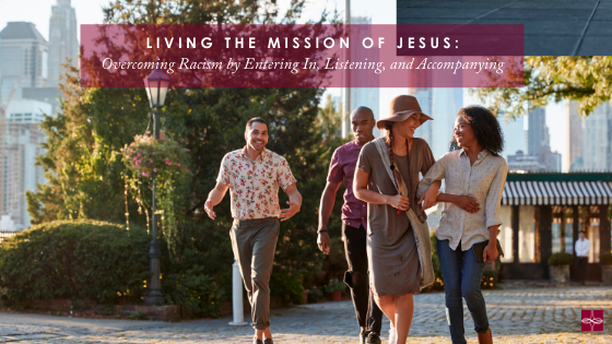

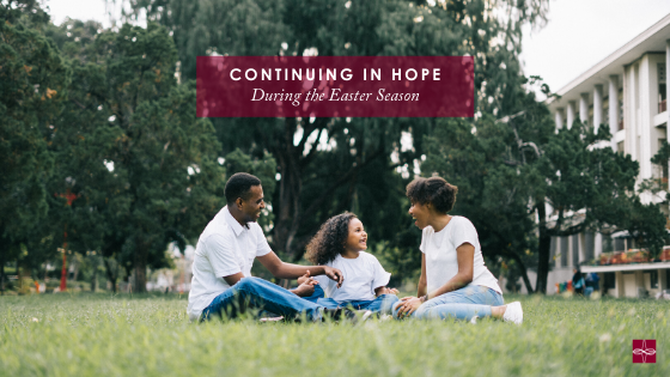
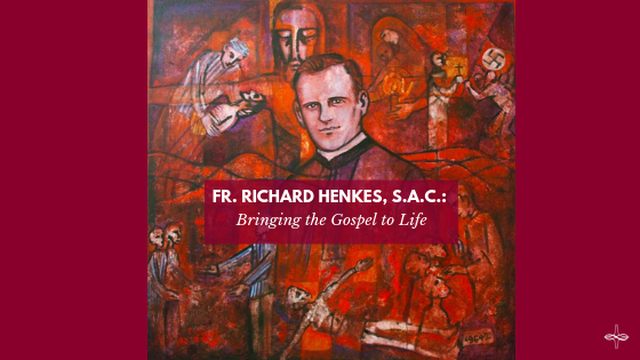
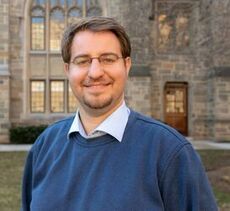
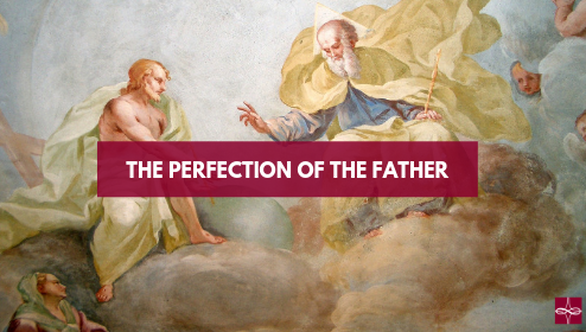



 RSS Feed
RSS Feed